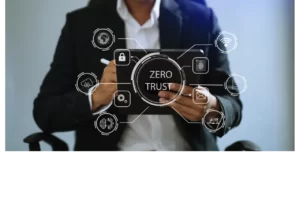Technology and data are essential to how businesses operate today. The IT security sector needs to monitor the cybersecurity threats of all those organizations properly.
In an enterprise security system, continuous monitoring is crucial. Gathering knowledge about people, gadgets, connections, information, workloads, actions, and condition in the organization’s infrastructure is made possible by correct engineering, implementation, and constant monitoring.
Continuous cybersecurity monitoring is a means of gaining important information and demonstrating governance over emerging security threats that may impact your business.
Definition of Continuous Monitoring
In real-time, continuous monitoring generally refers to using automation technologies by security experts to identify compliance standards and risk concerns inside an organization’s IT network.
Official evidence on security activities, including outside threats, illegal access, and control breaches, is provided through constant monitoring for risk and compliance monitoring.
To assist corporate risk management choices, continuous security monitoring (CSM), a threat intelligence technique, organizes the tracking of information security management, weaknesses, and other cyber threats.
As a result, the company’s incident management team can reduce cybersecurity risks before they develop into data security issues. These solutions improve your company’s cybersecurity posture by enabling faster, more adequate approaches to cyberattacks.
Importance of Continuous Monitoring
Because it enables businesses to constantly examine their general security structure, continuous security monitoring ensures that they adhere to their internal data protection rules even if changes occur.
Many, if not all, companies now depend on technology to perform mission-critical tasks, making it equally important to handle that technology and ensure its privacy, integrity, and reliability.
Additionally, continuous security monitoring can lower cybersecurity risks and the possible damage from cyberattacks and data leaks if those incidents happen.
How Continuous Monitoring Works
Continuous security monitoring makes real-time access to people and their equipment possible throughout network connections and corporate network operations. Professionals may watch any form of equipment.
Organizations may continually monitor their system to keep informed of cyber threats when they appear. Whether data is stored locally, in a data center, virtual environment, or in the cloud, IT professionals may manage and validate compliance and security needs with continuous security monitoring.
Consider the following primary forms of cyber monitoring: endpoint monitoring and network monitoring to understand better what it is and how it works.
Endpoint Monitoring
Endpoint monitoring entails keeping track of the hardware linked to a specific system to preserve it from the hardware’s threats.
Generally, the endpoints are:
● Any linked laptops
● Mobile phones
● Tablets
● Desktops and laptops
● Gadgets on your company’s network that need to be monitored
Network Monitoring
Network monitoring involves tracking and analyzing network activities to detect and respond to performance issues, which could indicate an intrusion or leave the network vulnerable to an attack.
Your network might become susceptible to attack if networking components are sluggish, congested, malfunctioning, disruptions, or other technical issues. In addition, a cyberattack may also show signs of a network, processor, or other device saturation.
In fact, you can analyze security logs from these various components by incorporating diagnostic tools, applications, or appliances into your network monitoring.
The program notifies your IT staff by emails, SMS, or other alerts when it discovers production problems or hazards. Your IT staff can react promptly to minimize the problem with early identification.
Methods for Using Continuous Monitoring
Your firm’s actions to detect IT systems, classify risk levels, install mitigation measures, continually enforce the controls, and react to emerging threats are formalized in a continuous monitoring strategy.
Here are some methods you can do for continuous monitoring.
Determine Your Unique Demands
Issues and priorities vary depending on the company. Spend time determining your primary needs to ensure your constant monitoring plan meets them.
Think about all the major monitoring areas your business has to pay attention to, any industry rules you must follow, and the major risks you need to look out for. It will assist you in identifying your top continuous monitoring objectives and selecting a product and procedure that fulfills them.
Decide on the Risk Levels
As company demands evolve, such as with the growth of different offerings, you should reevaluate your risk analysis.
Configuring a Software Tool
The IT firm may set up a continuous monitoring software solution to collect information from those cybersecurity apps as it integrates the appropriate security measures to safeguard important data assets.
Log accumulation is a component of continuous monitoring software solutions that gathers log files from network-deployed programs, including security systems that are in place to safeguard information systems.
Conclusion
Since cyberattacks may take many different forms, cybersecurity has emerged as digital technology
grows more prevalent in people’s daily lives. Nowadays, there are more gadgets than humans, and hackers are getting more creative, making it difficult to implement efficient security protocols.
To ensure safety in the cyber world, cyber security service providers in Chennai, like Uniware, can help you with top-notch cyber protection. Put your trust in Uniware for good and satisfactory cyber protection services!







